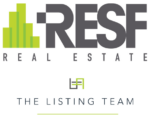Should You Rent Out or Sell Your House?
Determining what to do with your home when you’re prepared to move can be a huge decision. Should you offer it and utilize the money for your next experience, or maintain it as a rental to build long-lasting wide range?
It’s a question several home owners encounter, and the solution isn’t constantly simple. Whether you’re interested regarding the prospective income from leasing or worried about the obligations of being a property owner, there’s a lot to consider.
Allow’s go through some crucial concerns to ask to assist you make the very best choice for your scenario.
Is Your House a Good Fit for Renting?
Also if you’re interested in coming to be a property owner, your present house might not be suitable for leasing. Maybe you’re moving far away, so staying on top of the recurring upkeep would certainly be a problem, the neighborhood isn’t terrific for rentals, or your home requires significant repairs prior to you could rent it out.
If any of this sounds like it may apply, marketing might be your ideal choice.
Are You Ready for the Realities of Being a Landlord?
Handling a rental residential property isn’t practically gathering rent checks. It’s a in some cases challenging and time-consuming work.
As an example, you might get telephone calls from tenants at all hours of the day with maintenance demands. Or you may locate a tenant causes damage you have to repair before the following lease starts. You may even need to deal with people falling behind on settlements or breaking their lease early. Investopedia highlights:
” It isn’t tough to find horror stories of proprietors troubled with even more frustrations than revenues. Before determining to rent, think about talking with other property owners and doing a thorough cost evaluation. You could find that selling your home is a much better economic decision and less difficult.”
Do You Have a Good Understanding of What It’ll Cost?
Remember that there are extra prices you’ll want to intend for if you’re thinking regarding leasing out your home primarily to generate extra earnings. As an article from Bankrate describes:
Mortgage and Property Taxes: You still require to pay these costs, even if the lease does not cover all of it.
Insurance: Landlord insurance policy costs concerning 25% greater than normal home insurance, and it’s required to cover problems and injuries.
Upkeep and Repairs: Plan to spend at the very least 1% of the home’s value every year, even more if the home is older.
Finding a Tenant: This includes advertising expenses and possibly paying for background checks.
Jobs: If the residential or commercial property rests vacant in between renters, you’ll shed rental revenue.
Administration and HOA Fees: A residential property supervisor can relieve the concern, yet commonly charges regarding 10% of the rental fee. HOA costs are an added cost also, if suitable.
Bottom Line
To sum everything up, selling or leasing your home is an individual decision that relies on your circumstances. Whatever you determine, putting in the time to evaluate your options will certainly help you make the best selection for your future.
Ensure to weigh the disadvantages and pros meticulously and consult with specialists so you really feel sustained and notified as you make your decision. That’s what we’re here for.
Also if you’re interested in ending up being a property manager, your current residence may not be ideal for leasing. Handling a rental home isn’t just about accumulating rental fee checks. Prior to deciding to rent, consider chatting to other proprietors and doing an in-depth expense analysis. If you’re thinking about renting out your home mainly to generate extra revenue, keep in mind that there are additional prices you’ll desire to plan for. Make sure to evaluate the cons and pros thoroughly and seek advice from with experts so you feel sustained and informed as you make your decision.